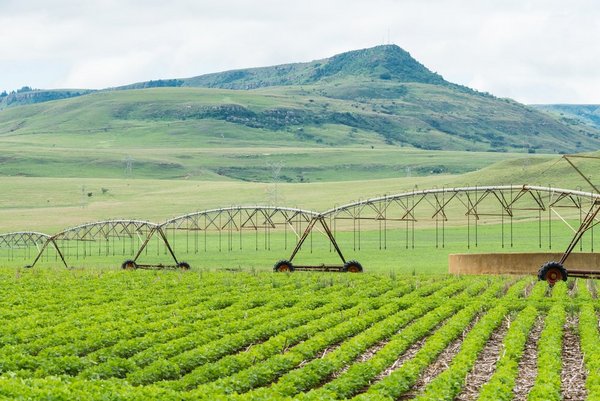 Read this article in French
Read this article in French- Share this article
- Subscribe to our newsletter
FIAN study indicates digital technologies threaten access to land
Digital technologies are increasingly being employed for land administration and management. For example, land is mapped and demarcated with GPS devices and drones. Information on landed property and land use is stored in digital registers and cadastres. Furthermore, digital tools and platforms are used to carry out land transactions and influence land policy. In the context of land, digitalisation has considerable impacts on access to as well as use and control of this important natural resource.
For the first time world-wide, the human rights organisation FIAN has summarised and analysed these impacts in its study “Disruption or déjà-vu”. In addition to a global overview of initiatives and processes, projects and developments were examined for the study in Brazil, Indonesia, Georgia, India and Rwanda. They show how digitalisation is contributing to aggravating existing forms of exclusion.
The results point to considerable gaps regarding the issue of human rights and protective mechanisms for marginalised groups. This replicates discriminatory approaches in past land policies. Even today, considering marginalised groups has hardly entered the toolkit of governments and also the international donor community. Hence, contrary to the promise of eradicating widespread problems in the land sector such as corruption, unfair distribution of land or insecure landed property relations, digital technologies are further encouraging inequalities and land-grabbing.
FIAN therefore proposes an Analysis Grid based on the UN land guidelines with which impacts of digitalisation which are problematic regarding human rights can be identified and countered.
Important study results
- Corporations and local elites sometimes use the data to secure land and drive out local communities. One example of this is the 700,000 hectare Mirador National Park in Brazil, where agribusinesses have illegally acquired land in nature reserves with the aid of digital cadastres. This digital land-grabbing has resulted in hundreds of families who have been living there for generations now being displaced.
- Experiments are being carried out in the land sector in more than 20 countries world-wide with Blockchain technology, which forms the basis of crypto-currencies such as Bitcoin. With this cutting-edge technology, it is claimed to be possible to solve fundamental problems in land management. However, the latest available information on the projects indicates that the technology has so far proved to be little effective. Many trials have stalled or are not being continued.
- International donors are providing hundreds of millions of dollars for the use of digital technologies in the land sector. Alone the World Bank is investing and lending more than a billion US dollars for land projects with a digitalisation component in Sub-Saharan Africa and South and Southeast Asia.
- Although access to land is of key importance to a large number of human rights and the wellbeing of the rural population, many digitalisation projects are being implemented without any arrangements regarding the assurance of human rights.
- Without a firm integration in human rights and a clear focus on the public interest, the chief beneficiaries from digitalisation projects in the land sector are mainly agribusinesses and high-tech companies, whereas disadvantaged groups stand to lose from them. Governments are increasingly relying on private enterprises for being provided with infrastructure for digital land administration, thus undermining public control of basic services and goods.
- Furthermore, the cases analysed show that digitalisation often goes hand in hand with government powers being transferred to private actors. In Georgia, for example, a Dutch company is running the Blockchain infrastructure which is to serve as the basis of the country’s land management system. This and other public-private partnerships give cause for serious concern over the public control of key goods such as land.
(FIAN/wi)
For more information: FIAN study “disruption or déjà vu?”





Add a comment
Be the First to Comment